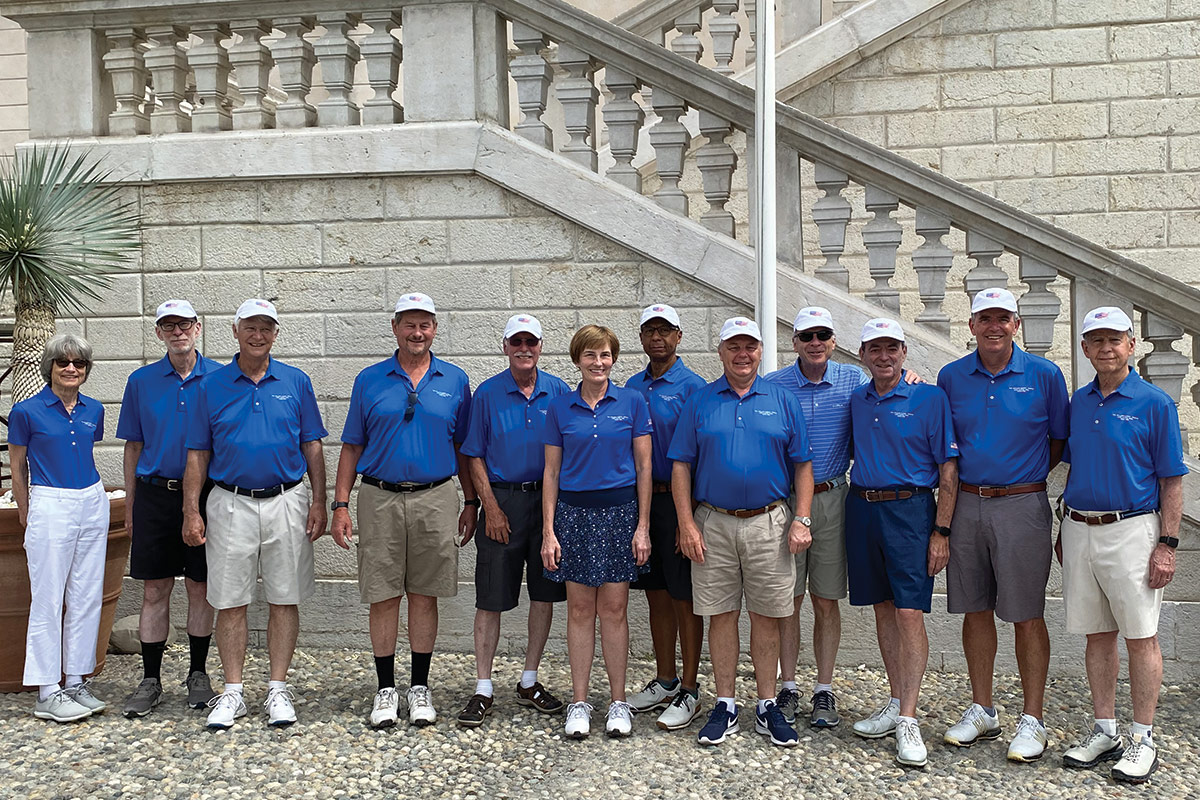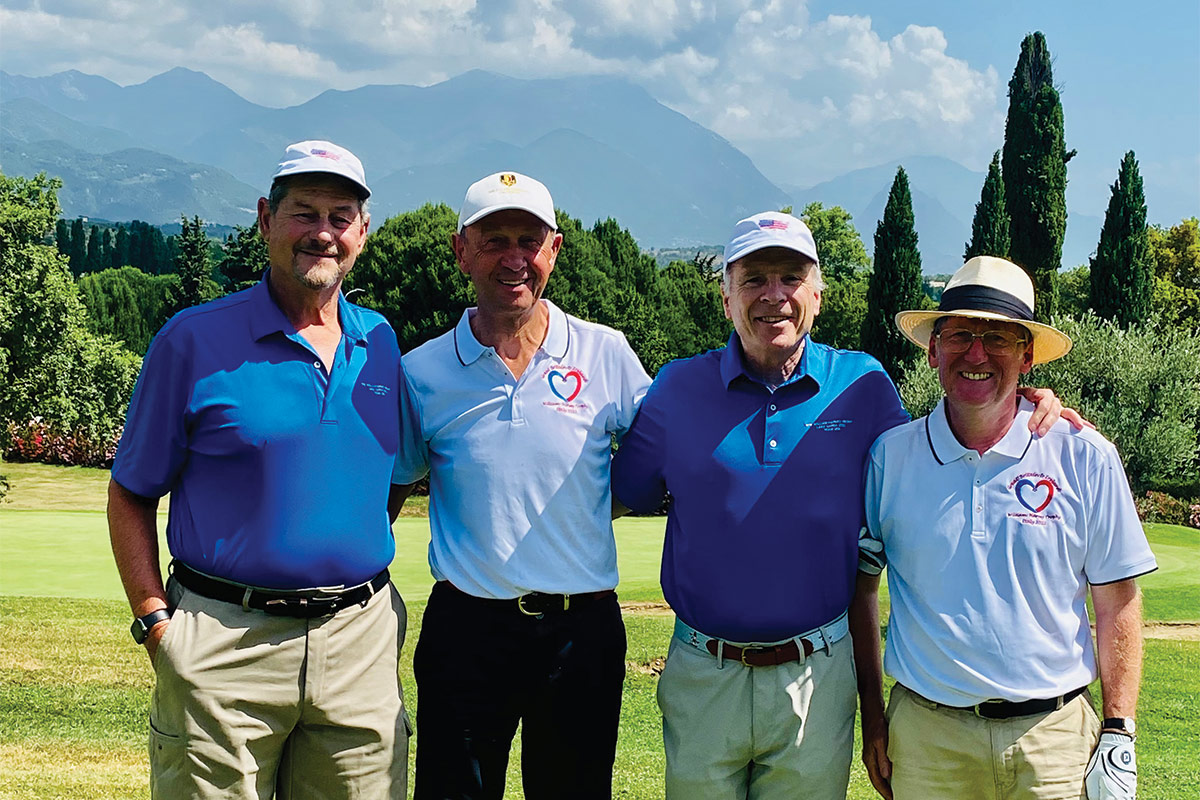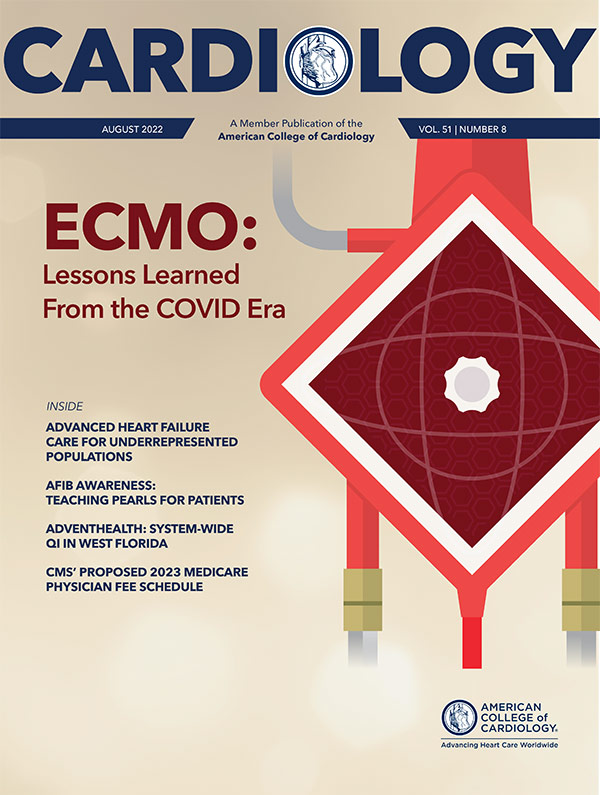The Pulse of ACC
ACC Joins Forces to Launch Buffalove Caring Hearts Initiative

The ACC has joined forces with Foodsmart, Higi and the Healthy Corner Store to launch the Buffalove Caring Hearts Initiative, which will provide sustainable, ongoing support and infrastructure for cardiovascular health and food access/security in the communities directly affected by the tragic events that occurred at Tops Friendly Markets this past May in Buffalo, NY.
As part of the program, Foodsmart – an all-in-one app-based grocery platform – will offer registered dietitian coaching, recipe and cost-effective grocery shopping support and tailored meal planning tools. Communities in ZIP codes 14208 and 14209 will also receive free grocery delivery, automated meal planning and grocery lists, and convenient, budget-friendly recipes.
In addition, Higi's Smart Health Stations will be deployed at Healthy Corner Stores enabling members of the community to monitor their health numbers like blood pressure and weight, understand risk factors for conditions like heart attack and stroke, and gain access to information on heart health from ACC's CardioSmart program. The platform's survey capabilities, physiological screening tools and other patient engagement mechanisms will allow Higi to provide education and personalized recommendations to resources available in the community.
"Community tragedies like the mass shooting in Buffalo have a direct impact on heart health. The ACC is mission-driven to improve heart health, both globally and locally," says Eric Stecker, MD, FACC, chair of the ACC Science and Quality Committee. "With the Buffalove Caring Hearts Initiative, our goal is to provide ongoing support that empowers, connects and provides convenience to the community for years to come by supplying resources for food security, nutrition, meal planning, in-store health screening services and patient risk assessments – all of which have a direct impact on heart health."
As part of its mission to transform cardiovascular care and improve heart health, the ACC has been working with the Healthy Corner Store Initiative to address health care disparities in Buffalo and other communities across the U.S. through a multi-level approach aimed at expanding access to fresh produce, healthier options and important heart healthy education. The Buffalo project was accelerated after the recent tragedy on the city's East Side.
Stay tuned for more information on the rollout of future projects. Click here to read more.
JACC Journals: Making an Impact Globally
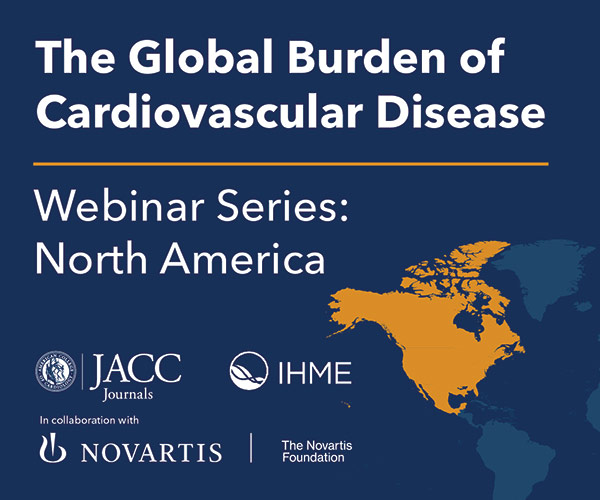
The global breadth and reach of the entire JACC Journals family were showcased by the 2021 Impact Factor numbers released last month.
Among the highlights, JACC earned its highest Impact Factor ever, gaining 3 points for an Impact Factor of 27.203). In addition, JACC: Imaging ranked 9th out of all cardiovascular journals worldwide, with JACC: Heart Failure, JACC: Basic to Translational Science and i also seeing increases in their respective ratings.
All told, the numbers reflect the incredible vision and leadership of the journal editors and their respective editorial boards, as well as the dedication of the authors, peer reviewers and publishing staff.
In addition, to the Impact Factor release, the past few months have been busy ones for JACC Journals with the first issue of JACC: Heart Failure under new Editor-in-Chief Biykem Bozkurt, MD, PhD, FACC, and the debut of the second full issue of the newest journal, JACC: Advances (Read more in JACC in Flash).
The latest webinar in the Global Burden of Cardiovascular Disease series focusing on North America is also available online, and, in exciting news, the JACC team has announced Jennifer Mieres, MD, FACC, as the inaugural Diversity, Equity and Inclusion Associate Editor for JACC, making her among – if not the first – associate editor of a cardiovascular peer-reviewed journal dedicated to these important issues.
Heading into August, the JACC Journals family is gearing up for the European Society of Cardiology meeting, followed closely by the ACC Latin America Conference and TCT 2022 in September. Look for more information on simultaneous publications, special receptions and meet-and-greet events, and more on JACC.org.
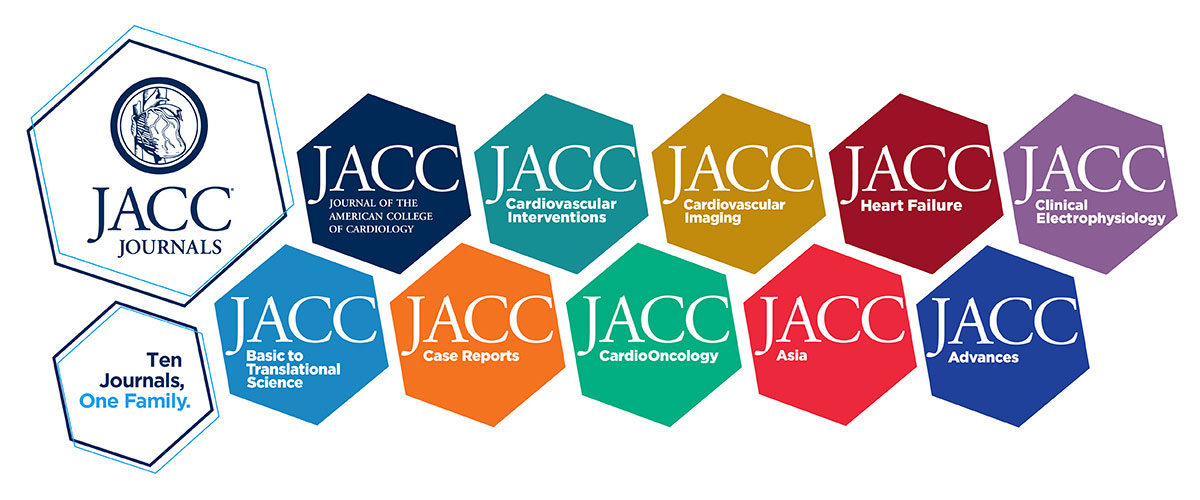
Solving For the Great Resignation

What would happen if NASA was about to launch a manned spaceship but there were not enough Mission Control personnel to staff the command center, or not enough flight engineers to conduct the launch, or not enough astronauts to pilot the space craft? The mission would be postponed, a great deal of money would have been wasted, and the situation would be embarrassing for the space agency.
"While the cancelling or delay of a NASA space mission is an uncommon event, the scenario of a canceled or postponed urgent, complex cardiac procedure is not and is actually becoming increasingly common due to a critical and worsening shortage of qualified health care professionals," writes ACC President Edward T. A. Fry, MD, FACC, in his latest JACC Leadership Page.
Fry highlights the many factors involved with the medical workforce crisis, including an aging clinician population, a record number of aging patients living longer with chronic cardiovascular care, and a global pandemic, while also proposing solutions that go beyond trying to increase supply and lower demand and involve "care transformation, operational care team redesign, and innovation to leverage new technologies that optimize physicians' and nurses' skills and efficiencies." Click here to get the details and gain insights into why addressing the workforce crisis is a critical priority for the ACC.
'Driving' Home Friendships on the Fairway
Teams representing cardiovascular societies from the U.S., European Union, and Great Britain and Ireland competed in the annual William Harvey Golf Tournament this past June in Lake Garda, Italy, following the centenary meeting of the British Cardiovascular Society. Past presidents and leaders from the ACC, American Heart Association and other cardiovascular societies across Europe hit the green for the four-day event named in honor of the British scientist who wrote De Motu Cordis (Anatomical Account of the Motion of the Heart and Blood) published in 1628.
The tournament, often referred to as the "Ryder Cup of Cardiology," was originally developed by Will Fennel, MD, (Ireland); Peter Sleight, MD, (United Kingdom); and Tom Ryan Sr., MD, FACC, (United States) in 1999 to foster international academic camaraderie. The first tournament was played in Killarney, Ireland, in 2000 and has subsequently rotated between the British Isles, Continental Europe and the U.S.
Keeping with the 20-year trend of the home team winning the tournament, Europe took home the 2022 win, followed by the U.S. team and the Great Britain and Ireland team, respectively.
ACC Past President C. Richard Conti, MD, MACC, who participated on the U.S. Team during his lifetime, once described the value of the William Harvey Trophy by noting that: "All cardiovascular specialists need the company, the talents, the insights, and the contributions of other human beings to grow and develop productively. As we work with our own colleagues and other medical organizations in the United States, it is obvious that it is just as important to develop relationships with cardiovascular specialists abroad."
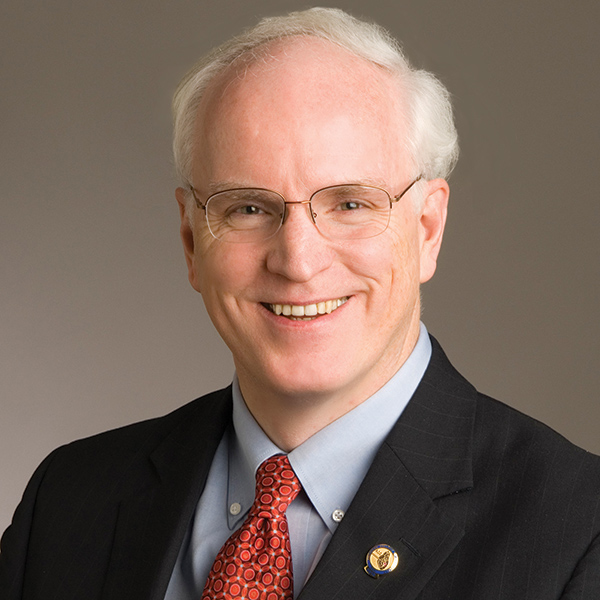
This piece was authored by Cardiology Editor-in-Chief, ACC Past President John Gordon Harold, MD, MACC.
Mitigating Disparities in Cardiovascular Training
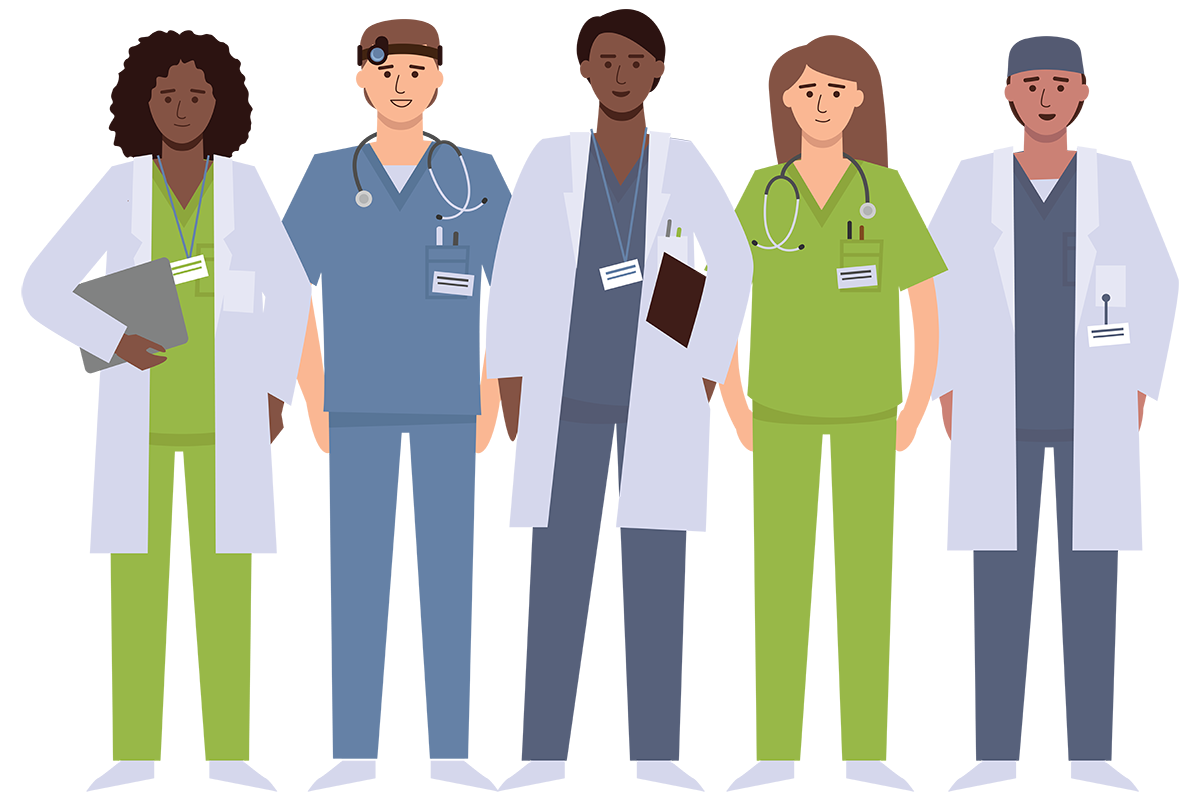
Pervasive racial disparities in cardiovascular health care result in part from a shortage of clinicians belonging to underrepresented minorities (URMs), according to a recent article published in JACC.
Abdul Mannan Khan Minhas, MD, Shazib Saghee, MD, and colleagues note that URMs in cardiology, defined as physicians or trainees of African American or Black, Hispanic, Native American or Alaskan race, represent between 10-12% of practicing cardiologists in the U.S., despite constituting roughly 30% of the U.S. population. While small improvements have been made in encouraging a greater number of URMs entering the field, the pool of candidates remain small due to constraints posed by structural racism, lack of racial diversity among academic faculty, etc.
The authors suggest "a need for more effective systematic changes to ensure equitable training opportunities within medical schools and graduate training programs." ACC's Diversity, Equity and Inclusion initiatives, including bias training and the Internal Medicine Program, are starting to have an impact, but long-term change doesn't happen overnight. However, Minhas, Saghee, et al., say the end result is worth it.
"It is of paramount importance to overcome the hesitancy to embrace racial/ethnic diversity in the cardiology workforce," they write. "It has been shown to improve the learning environment; promote equity and empathy in health care; benefit the health care of all sections of society; improve the outcomes; and prove instrumental in research and innovation advancements."
Click here to read the full article. Visit ACC.org/ACCPresident to watch the recent "UnEDited" presidential discussion with ACC President Edward T. A. Fry, MD, FACC, on the topic of cardiovascular fellowship training and challenges and opportunities to improve equity and diversity within the profession. A more diverse cardiology workforce will contribute to better health care for the U.S. population.
Clinical Topics: Cardiovascular Care Team, Heart Failure and Cardiomyopathies, Acute Heart Failure
Keywords: ACC Publications, Cardiology Magazine, Access to Information, Aging, African Americans, Anniversaries and Special Events, American Heart Association, Astronauts, Blood Pressure, Cardiovascular Diseases, Cost-Benefit Analysis, Foeniculum, Food Security, Goals, Healthcare Disparities, Heart Failure, Latin America, Journal Impact Factor, Leadership, Mentoring, Mobile Applications, Myocardial Infarction, Nutritionists, Pandemics, Patient Care Team, Patient Participation, Physicians, Risk Assessment, Schools, Medical, Stroke, Risk Factors, United States National Aeronautics and Space Administration, Workforce, North America
< Back to Listings


